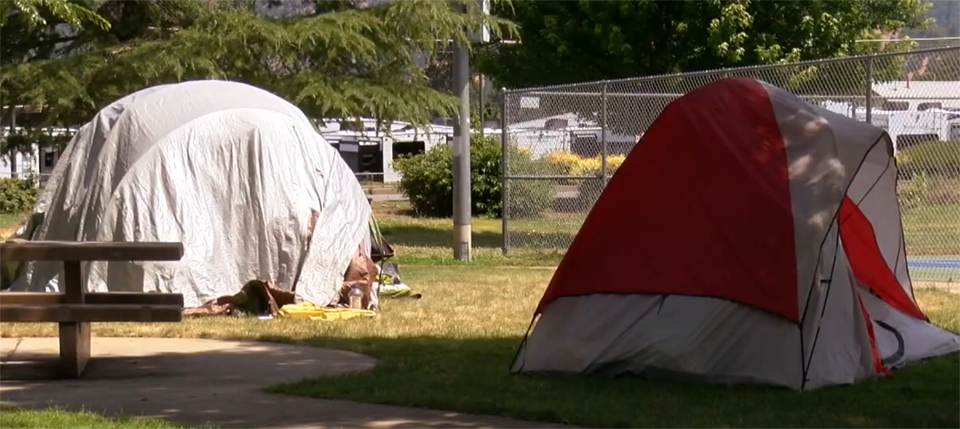Grants Pass Homeless Case Respondents File Scotus Brief

GRANTS PASS, Ore. — Written arguments were filed yesterday with the Supreme Court of the U.S. (Scotus) by the respondents in a Supreme Court case that was initiated in Grants Pass, the matter of Grants Pass v. Gloria Johnson and John Logan et al. In anticipation of the hearing expected next month.
UPDATE: All Eyes On Monday’s Grants Pass Homeless Supreme Court Case
In the 78-page brief filed with Scotus, Grants Pass ordinances are under the spotlight. The City said that the ordinances set out to protect the public health and safety of all citizens by restricting certain access to public parks, and as a result, usage. There is a belief that the regulations target homeless people who could otherwise access and use the parks freely, and this could extend to overnight stays.
The lead counsel for the respondents, Ed Johnson of the Oregon Law Center said that the case isn’t about the city’s capacity to clear encampments, as this is explicitly permitted under the Ninth Circuit’s ruling. The only question being dealt with in this case according to Johnson is whether Grants Pass can make it unlawful for its homeless population to rest or sleep anywhere on public property at any time with even just a blanket to survive the cold, whether they have anywhere else to go or not.
Punishments Facing Grants Pass Homeless People
Johnson said that precedents in the Supreme Court set for decades recognize that punishing people based on their involuntary status is cruel and unusual. The existing ordinances in Grants Pass, according to him, are unconstitutional as they make it impossible for a homeless person without access to shelter to remain in Grants Pass without facing endless fines and jail time.
In the brief filed by the Oregon Law Center, they state that:
- In criminalizing camping, the ordinance punishes homeless people for resting or sleeping outside- anywhere, at any time, even though they cannot access shelter and or survive without a blanket. The offense simply describes living in the community without access to shelter. The status of being homeless is defined by the behavior that has been singled out for punishment.
- Violations are subject to punishment as follows:
- A $295 fine, increasing to $537.60 if unpaid.
- The police can issue an exclusion order after two citations, which makes the homeless person guilty of criminal trespass if they remain on public property.
- Each count of criminal trespass could incur up to 30 days in jail and a $1,250 fine.
- The punishment scheme is excessively harsh and there are infinite violations possible if the person stays in Grants Pass. In effect, the person is permanently ‘guilty’ of trespassing when not serving jail time for the previous violation.
- Under the ordinances, all involuntarily homeless people are guilty of ‘camping’ and must leave the community or be punished. There are no exceptions for people who are sick, disabled, elderly, or otherwise incapable of providing for themselves.
The parties agree that the case turns on whether the City’s ordinances inflict cruel and unusual punishment on homeless people who cannot afford or otherwise gain access to shelter.
US Supreme Court Case Revolves Around Alleged Cruel And Unusual Punishment
The respondents argue that Grants Pass ordinances punish those who are involuntarily homeless and that this violates the Cruel and Unusual Punishment clause contained in the Eighth Amendment to the U.S. Constitution. In the brief, they say, “It is difficult to imagine a more blameless offense than resting outside with a blanket to survive the cold when you have nowhere else to go.”
They argue that homeless people are being punished for their continued physical existence in the community. Research shows that even short periods of jail time only entrench the status of homelessness as it disrupts existing and future employment by creating criminal records.
Johnson is looking forward to presenting their case to the Supreme Court where it is set down for hearing on April 22.
